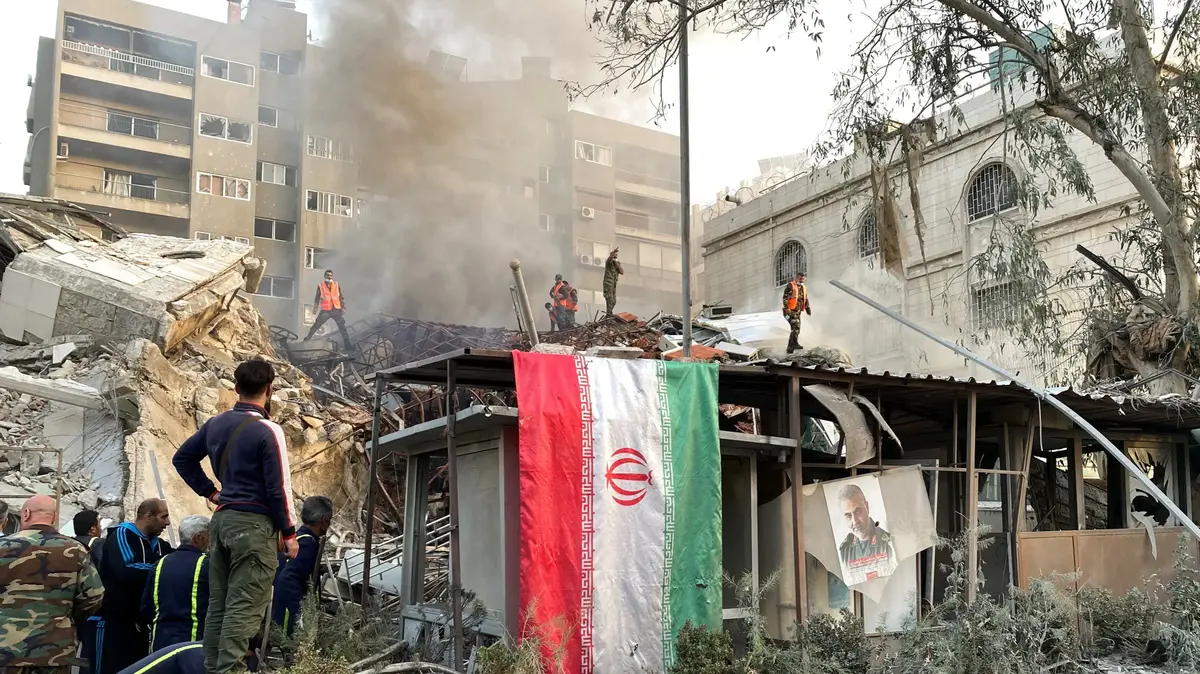Since the announcement of a normalization of relations between Khartoum and Israel, a part of the Sudanese supports this decision, likely to help the country out of the throes of the economic crisis, while another denounces a betrayal of the "
cause
".
pan-Arab
”.
Made on Friday by US President Donald Trump, this announcement comes in the wake of another: that of the forthcoming withdrawal of Sudan from the American "black" list of states supporting "terrorism", on which Khartoum has appeared since 1993.
Read also: Israel and Sudan will normalize their relations
Sudan has long demanded its removal from this list, synonymous with sanctions and obstacles to investment for its economy, weighed down by the lack of foreign exchange and an annual inflation rate that has exceeded 200%.
His demand was accentuated after the fall of Omar al-Bashir in April 2019, under pressure from the streets, and with the emergence of a transitional power.
Combined with leaving the American list, normalization with the Hebrew state is now seen by part of the public as a way to break the isolation of Sudan.
The agreement will allow "
to reintegrate the international community
" and facilitate the dialogue with "
the World Bank and the International Monetary Fund (IMF)
", affirms the analyst and editor in chief of the daily al-Tayar, Othman Mirghani.
Several Sudanese businessmen are also hoping for beneficial spinoffs for business and commerce.
Read also: United States: Trump will remove Sudan from the list of states supporting terrorism
The IMF forecasts a recession of 8.4% in 2020 in Sudan with a very limited rebound next year (0.8%).
But these calculations, published in mid-October, do not take into account recent diplomatic developments.
On Sunday, Khartoum announced plans "
in the coming weeks (...) for the signing of cooperation agreements in the fields of agriculture, commerce, economy, aviation and migration
" between the two countries.
Red line
But a majority of Sudanese blame their leaders for having crossed a red line by betraying "
the pan-Arab cause
" crystallized around the Palestinians since the creation of Israel in 1948.
An October poll by the Arab Center for Research and Policy found that only 13% of Sudanese polled approved of establishing relations with Israel and 79% opposed it.
The announcement of normalization is "
contrary to national law and to the Pan-Arab commitment
", judge Sadek al-Mahdi, leader of the Umma party.
Read also: The United States dangles Sudan to reintegrate into the international arena
Sudanese religious leaders were among the first to decry this rapprochement.
"
We have issued a fatwa (non-binding religious opinion) prohibiting normalization,
" said Sheikh Adel Hassan Hamza, secretary general of the main Islamic council.
After the Six-Day War, which in 1967 saw Israel seize the West Bank, East Jerusalem and Gaza in particular, several Arab leaders gathered in Khartoum to adopt a resolution known for its "three no's" : no to peace with Israel, no to its recognition and no to negotiations with the Hebrew state.
Under the Bashir regime, Sudan, accused by Israel of letting arms pass through its territory to Gaza, had been one of the supporters of the Palestinian Islamist movement Hamas.
Challenges
For the leader of the Pan-Arab Baath Socialist Party, Mohamed Haidar, normalization does not fall within the prerogatives of the transitional government.
An argument invoked in August by Prime Minister Abdallah Hamdok himself, while rumors of normalization circulated, and repeated in recent days by the head of diplomacy, Omar Kamar Eldin.
The latter said that the normalization agreement would come into effect only after ratification by the legislative power - yet Sudan still does not have a transitional parliament.
Born from a sharing of power between soldiers and civilian representatives of the movement that brought down Bashir, the current government faces several challenges, including that of leading a three-year transition to civilian rule.
Read also: Pompeo hopes Sudan will recognize Israel "quickly"
Normalization will "
bring water to the mill of supporters of the old regime whose interests coincide with those of Islamist groups
," agrees Jonas Horner, of the International Crisis Group (ICG) think tank, although, according to him, "
The main threat to the stability of Sudan remains, by far, the economy
."
Naturally "
cautious
", the Prime Minister should strive to "
find a consensus and avoid creating deeper divisions
," said the expert.




/cloudfront-eu-central-1.images.arcpublishing.com/prisa/E3I6SSZZQ6W6BXIAXV5VG36JCY.jpg)




/cloudfront-eu-central-1.images.arcpublishing.com/prisa/Q3R3DI62AJHR7AGTRNQPF2AHCI.jpg)





